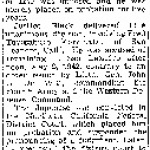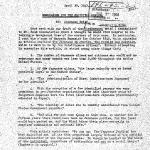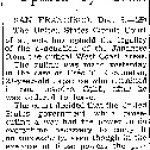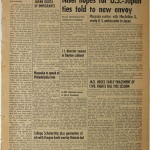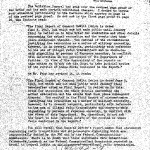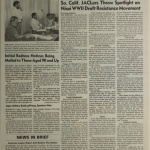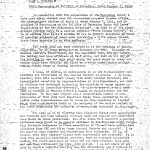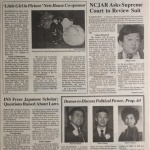Marilyn Hall Patel
| Name | Marilyn Hall Patel |
|---|---|
| Born | 1938 |
| Birth Location | Amsterdam, New York |
Federal judge who in 1983 overturned Fred Korematsu 's criminal conviction for violating the military's World War II order that all Japanese Americans leave the West Coast. Judge Marilyn Hall Patel (1938– ) ruled in Korematsu's favor based on evidence that government attorneys during the war had intentionally suppressed and falsified evidence to the United States Supreme Court.
Patel was born in 1938 in Amsterdam, New York, and graduated from Wheaton College in 1959. After earning her J.D. from Fordham School of Law in 1963, she was in private practice in New York City until 1967. She then moved to San Francisco where she was an attorney for the Immigration and Naturalization Service (INS). She left the INS in 1971 to return to private practice, focusing on cases dealing with women's rights, employment discrimination, and immigration. In addition, she taught law as an adjunct professor at the University of California, Hastings College of the Law. She was also legal counsel for the National Organization for Women.
In 1976, California Governor Jerry Brown appointed Patel to be a municipal court judge. In 1980, President Jimmy Carter nominated her to the U.S. District Court, Northern District of California. After the U.S. Senate confirmed her nomination, she became the first woman judge in the history of the district.
In 1983, she was randomly assigned the case of Fred Korematsu, who had filed a writ of error coram nobis , an obscure legal procedure used to reopen a criminal case after a person has been convicted and served time. She had never dealt with the procedure before.
After granting repeated requests by government attorneys for continuances, Patel held a hearing on November 10, 1983. Knowing it would attract a large audience, including many Nisei who considered this to be the trial they never had, Patel held the hearing in a large ceremonial courtroom that could accommodate more people than her regular courtroom. Patel surprised the attorneys and the audience by announcing her decision overturning Korematsu's conviction, explaining that the government's response to the coram nobis petition was "tantamount to confession of error" and that the exclusion orders Korematsu violated were based on unsubstantiated facts, distortions and the assertions of at least one military commander whose views were seriously infected by racism.
In a later written opinion, she commented that the U.S. Supreme Court's Korematsu decision "stands as a constant caution that in times of war or declared military necessity our institutions must be vigilant in protecting constitutional guarantees." Her ruling was the first time a judge had overturned a criminal conviction that had been upheld by the U.S. Supreme Court. Although her decision invalidated Korematsu's conviction, it did not overturn the U.S. Supreme Court's 1944 ruling.
Patel served as chief judge of the District Court between 1997–2004, the first woman to hold the post. She retired in September 2012.
For More Information
Of Civil Wrongs and Rights: The Fred Korematsu Story . Documentary film produced by Eric Paul Fournier, 2000. 60 minutes.
Irons, Peter, ed. Justice Delayed: The Record of the Japanese American Internment Cases . Middletown, CT: Wesleyan University Press, 1989.
Yamamoto, Eric, Margaret Chon, Carol L. Izumi, Jerry Kang, and Frank H. Wu. Race, Rights, and Reparation: Law and the Japanese American Internment . Gaithersburg, Md.: Aspen Law & Business, 2001. Frederick, Md: Wolters Kluwer Law & Business, 2013.
Last updated Aug. 24, 2020, 3:06 p.m..

